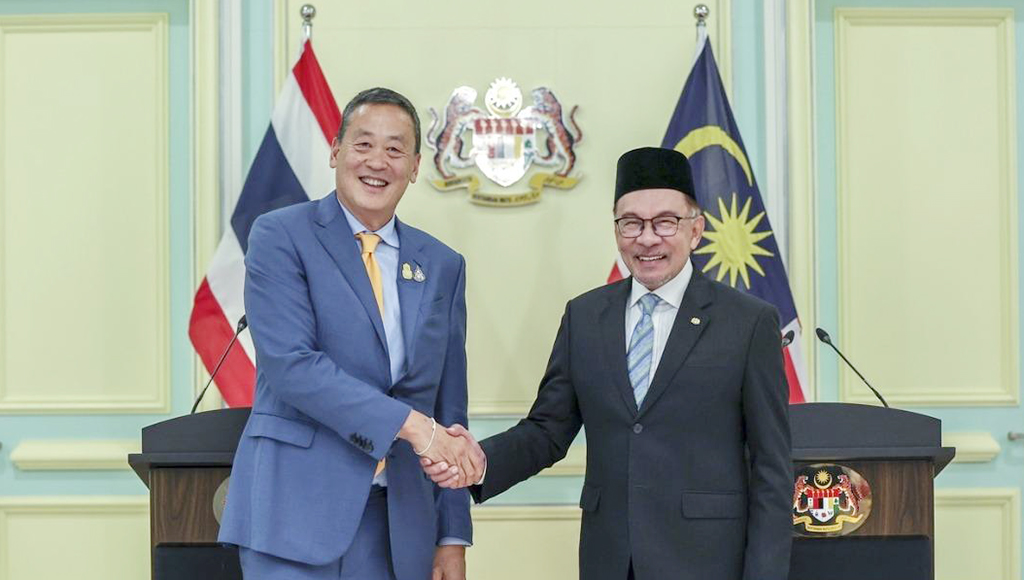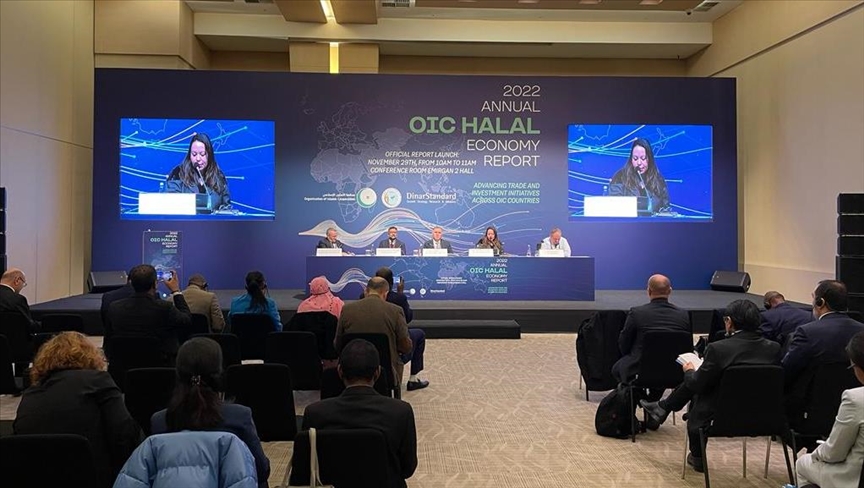realnoevremya.com
The supply market of regional companies abroad has increased by 17,5 billion dollars, or by 18%.
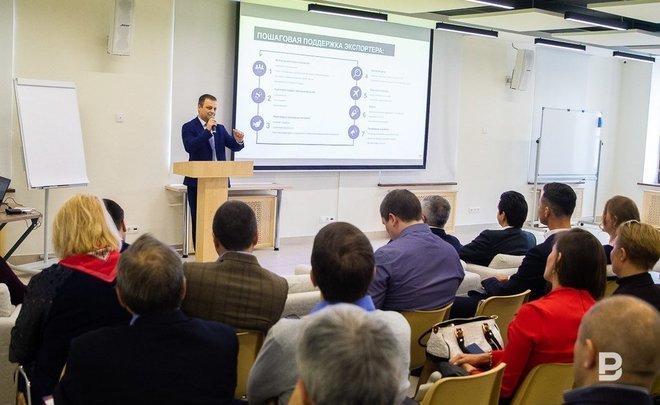
The difficulties of supplying halal products abroad, unpleasant surprises for Russian exporters in the promotion to the Chinese market and the fight against “business tourism at the state’s expense” were discussed on 30 April in the Entrepreneur’s House of Tatarstan at the conference #MyExport. The discussion of problems was followed by the correspondent of Realnoe Vremya.
“Could you give the recipe, please”
“I hope you will receive today the answers to those questions that have already accumulated in your minds,” moderator of #MyExport, Vice-President of the Commerce and Industry Chamber of Tatarstan Artur Nikolaev opened the conference. “Don’t hold back, ask them!”
“A difficult, ambitious task has been set — the withdrawal of national companies for export,” Tatarstan Minister of Economy Farid Abdulganiev took the microphone. “Last year, our exports grew by almost 18 per cent, which is 17,5 billion dollars. This is a really good indicator in difficult geopolitical conditions. 90 small business companies are due to export this year, 34 companies have already been withdrawn, although it is really not easy. The tasks do not end this year, we should develop common approaches and methods to work systematically. Unfortunately, there is no single recipe for how to export, and each exporter requires an individual approach, but I hope that together we will develop some standards.”
“I would like to change the subject a little bit, not so optimistic to say,” Chairman of the Chamber of Trade and Commerce Shamil Ageev made a slight dissonance in the overall positive mood. “We started supporting exports 20 years ago — finally, we are starting to wake up. Export ruble — is completely different ruble.”
Ageev listed the necessary components of success: state support, including tax and credit, participation in exhibitions, as well as “clear criteria that give confidence that our products will be in demand.”
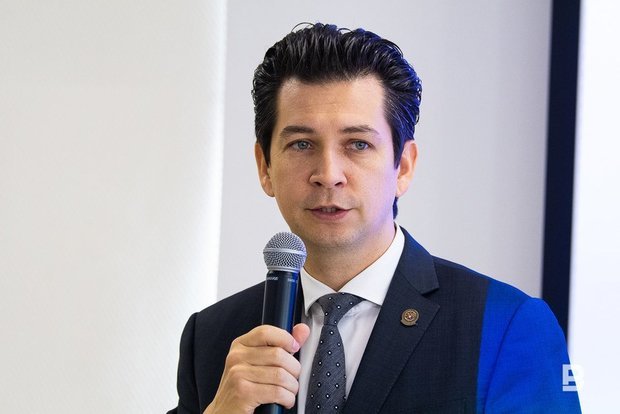
“A difficult, ambitious task has been set — the withdrawal of national companies for export,” Farid Abdulganiev took the microphone
Go to the site, everyone!
The head of the separate division of the Russian Export Centre in Nizhny Novgorod Nikolay Ereev told about the new opportunities opening this year for entrepreneurs:
“The Russian Export Centre is a state corporation related to VEB. Our task is to bring Russian exporters to foreign markets. We consist of 15 offices across the country, 58 trade promotion offices of the Russian Federation in the countries of the world… There is the Export Support Centre in the Republic of Tatarstan. An entrepreneur comes [to us] with his products and asks, ‘Where can I take it?’ and we help.”
Ereev invited potential exporters to the REC website, where one can find a suitable region for the supply of the product. Along the way, he told about how high-quality and quite promising at first glance products can not go in the region where it would seem that it should be bought like hot cakes. On the example of menthol sweets, which were planned to be delivered to China, but which were not tested there, because they turned out… to have not enough menthol flavour, “It should have as much as to cause literary tears of the Russian consumer.”
Similarly, a good product can block the road to China… correct from the point of view of Europeans packaging, “On the shelves of our stores, we see more pastel colours, because we associate it with natural products. They should have bright, ultra-bright colours.”
Contact — no contract
Answering the questions of entrepreneurs, Nikolay Ereev talked a lot about China, so it might seem that it is the development of trade with this country that he primarily targets Tatarstan entrepreneurs on. However, in the end it turned out: not so much aims, but warns against mistakes and losses.
“In China, many ingredients are prohibited, and many of our enterprises do not know this. Just recently, the company without our support went to China and eventually buried there two containers of chocolate, because one of the ingredients was poppy seed, which in China is prohibited for import in any form, even confectionery poppy.”
He also warned that there is only one response to the presentation of products out of 20, and if you’re lucky, it becomes a contract, “but for this to happen, you need to work out everything, and very often people forget about it.” Also, that for the full-fledged building of relations with foreign partners most enterprises have neither English-speaking employees nor employees who know the consumer properties of the goods and the business etiquette of the country where the goods are planned to be delivered, “We will also try to help you with this. We start with the basics, and even the special REC school was created for this purpose.
“Many export contracts die at the stage of formation,” warned Ereev. “For example, the company — manufacturer of fillers for the food industry received the first contract from China: the contract value is 10,000 yuan. The cost of logistics — 10,000 yuan…”
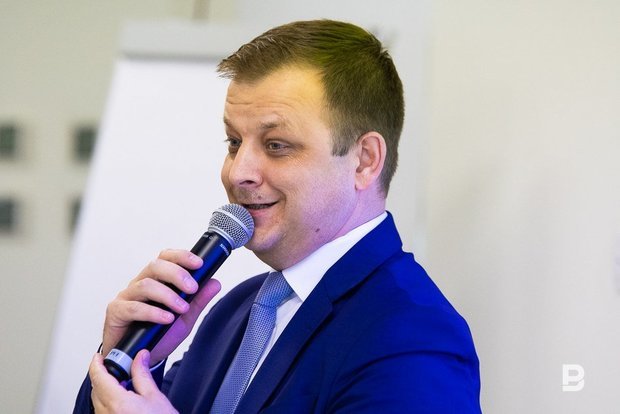
Nikolay Ereev talked a lot about China, so it might seem that it is on the development of trade with this country he primarily aims Tatarstan entrepreneurs
History – to dustbin!
A common mistake of domestic producers is the desire to represent not their products, but themselves, loved ones. Nikolay Ereev told an instructive story about a company, the presentation of the products of which for the Republic of Iran began with eight slides, which presented the history of the company, its past successes and even all the directors in chronological order, then there were four slides about the medals received in the domestic market, two slides — about the current leadership and only the last two slides were devoted to the products themselves.
“They even made a book bound in leather,” noted Ereev. “But no one needs such a presentation in foreign markets. We will try to help you in preparing your presentations.”
Money for Made in Russia
The Chinese provide a delay of payment up to several years, it is a disaster for our enterprises. In order to support our exporters in terms of credit resources, Roseksimbank was created, which provides them on preferential terms, if it is for export.
“Also, the Russian Export Centre created several programmes — Made in Russia, programmes aimed at improving the competitiveness of our products in foreign markets and so on,” said Nikolay Ereev.
He separately focused on credit support under the simplified scheme:
“You, as an enterprise, sign up to 2024 under certain obligations to increase the volume of exports, and the Russian government signs up for compensation of 4,5 per cent of your annual commercial loan.”
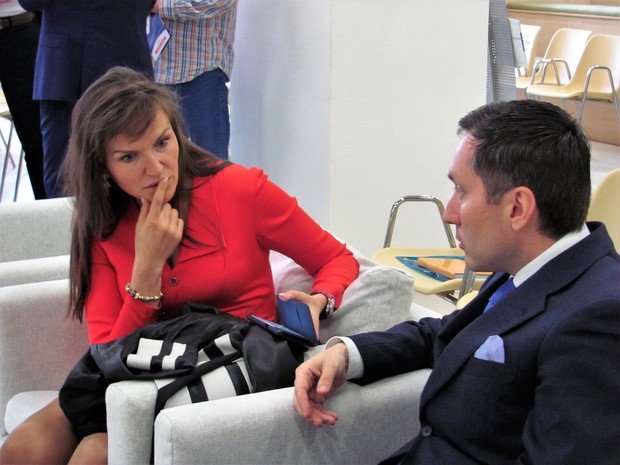
As Aygul Shirieva later explained to the correspondent of Realnoe Vremya, this project is aimed at a wide export of Tatarstan halal meat products, including large players of the local market. Photo: Inna Serova
Halal — only until the border
The information on compensation aroused particular interest among the participants. The most original question was asked by Aygul Shirieva — the head of the new Tatarstan export project “Tatarstan Halal hub”, initiated by the Republican Fund for Support of Entrepreneurship and Tatarstan Investment Development Agency:
“Having crossed the border, our halal becomes not halal. Is it possible to get compensation for the certification of our products abroad?”
“Every Muslim country does not recognize halal neighbours,” Ereev “comforted” her. “But if it is a state certificate — no problem!”
As Aygul Shirieva later explained to the correspondent of Realnoe Vremya, this project is aimed at a wide export of Tatarstan halal meat products, including major players in the local market (Kazan oil extraction plant, Mamadysh cheese factory) and Russian producers, for example, Roshchinsky meat processing plant (St. Petersburg). According to her, certain funds have already been allocated to support the project.

